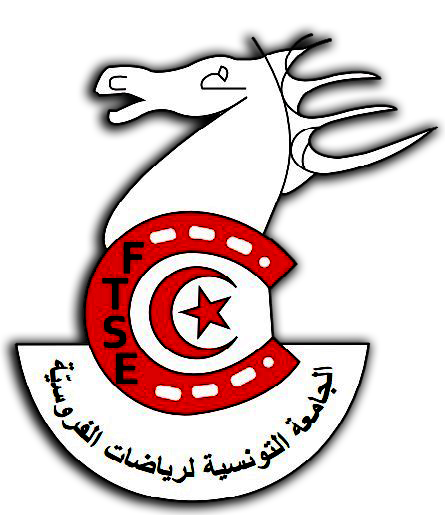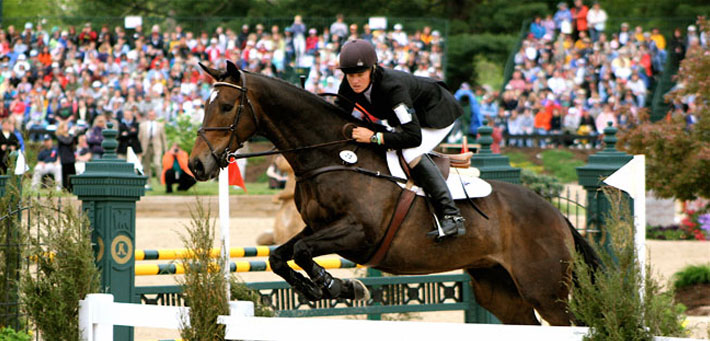Actions undertaken within this partnership:
- Familiarization, diagnosis of the current situation, identification of needs, and setting of objectives.
- Establishment of a technical management structure.
- Training of paddock stewards.
- Advanced training for junior riders in the Show Jumping category.
- Establishment of a regulatory framework for participation in competitions, standardizing rider levels. This framework aims to ensure the technical proficiency of riders before participating in competitions.
- Minimum monitoring of riders' technical level and documenting their progress through mandatory level tests.
- Valorization of coaches and clubs through the implementation of coaching certifications.
- Enhancement of assessors through training and refresher courses.
Actions planned for the first half of 2012:
- Endurance judges training.
- Monitors training.
- Dressage training for young endurance horses.
- Advanced training for riders.
- Course designers training.
- Show Jumping judges training.
- Endurance stewards training.
We have also obtained approval from the FFE for Tunisia's participation in the World Club Cup for both disciplines, scheduled for July 2012 at the Lamotte Beuvron Equestrian Park in France.
Implementation of a participatory approach:
In an effort to foster active partnerships with its affiliates and to move away from the directive approach used in the past, the federal board has organized frequent meetings with club officials.
Communication with clubs and affiliates:
In an ongoing effort to improve communication with its affiliates and licensed members, the board initially created an FTSE page on Facebook, which allowed us to communicate our actions and various competitions (preliminary programs, running orders, results, photos). Subsequently, the board launched the official FTSE website.
Rider personal accident insurance:
In accordance with the commitments made by the federal board, we reviewed the current conditions, assessed the existing contract, and renegotiated its terms, resulting in the following provisions.
Previous insurance contract terms:
- Accidents covered up to 400 DT.
- Endurance training/races not covered.
- Accidents during travel to competitions not covered.
- Only horse fall accidents covered.
- Ambulance fees not covered.
- Officials not covered.
New insurance contract terms:
- Endurance training & races now covered.
- Accidents during travel to competition sites covered.
- Ambulance fees covered.
- All types of accidents covered for licensed riders and officials (falls, bites, kicks, etc.).
- Minimum annual coverage ceiling of 1300 DT with flexibility for rider/official choice."
|
Cotisation |
Plafond de couverture |
|
30 DT |
1 300 DT |
|
45 DT |
3 000 DT |
|
100 DT |
4 500 DT |
Death/Disability of Horses
Possibility for the federation to negotiate on behalf of the owners the coverage of the risks of death and disability of their horses. The contract will be taken out between the owner and the insurance company.
Death / Disability of riders
Possibility for the federation to negotiate on behalf of the riders the coverage of the risks of death and disability. The contract will be taken out between the rider and the insurance company.
Responsabilité civile des clubs
The federation has the possibility to negotiate, on behalf of the clubs, coverage for risks related to civil liability associated with their activities. The contract will be entered into between the club and the insurance company.
Responsabilité civile organisateur
The federation has the possibility to negotiate, on behalf of the affiliates, coverage for risks related to the occasional organization of competitions, events, gatherings, etc. The contract will be entered into between the organizer and the insurance company.
FORMATION VETERINAIRES
A training session for veterinary judges was organized on September 23, 2011, in Hammamet (17 participants), led by Dr. Antoine Seguin, FEI 4* veterinary judge.
Les nouvelles licences fédérales :
As part of the new categorization of riders, which was presented and discussed in a meeting with officials from various affiliated clubs, we propose starting from 2012 five types of licenses adapted to each level:
Licence pratiquant: Does not allow participation in competitions/races. Allows coverage of riders during show jumping or endurance training sessions.
For show jumping:
Licence Initiation: Mandatory for participation in initiation events (up to 60cm).
Licence Qualification: Mandatory for participation in preparatory events (70cm to 100cm).
Licence Compétition: Mandatory for participation in competition events (CSO*, CSO**, CSO***).
For endurance:
Licence Initiation: Mandatory for participation in races of less than 50 Km.
Licence Qualification: Mandatory for participation in preparatory events of less than 80 Km.
Licence Compétition: Mandatory for participation in races of 80 Km and more.
For officials:
Licence Officiel: Mandatory for all individuals officiating at events organized under the auspices of the federation.
Internal Regulations:
To comply with current legislation, the federal office was obliged to postpone the drafting of internal regulations until the adoption of the new statutes of federations developed by the supervisory ministry. So far, the new statutes have not yet been issued.
Identification of Competition Horses:
In order to identify and valorize horses, the federal office, in collaboration with FNARC, established a Tunisian sport horse studbook. A campaign for chipping and identification of all horses was implemented. Thus, all horses now have an official accompanying document issued by FNARC. Exceptionally, and in order to promote this action, we obtained this operation for free.
Anti-Doping Control:
We have submitted a request and officially obtained approval from the racing society to finally implement a horse anti-doping control program for the 2012-2013 season for show jumping and endurance disciplines.
Sports Activities:
Show Jumping (CSO):
-
We made sure to respect the CSO schedule starting from the first weekend following the federal elections.
-
We conducted tidying work on the federation's equipment, which was in a poor state, and took inventory.
-
We restored all obstacle equipment (walls, bases, bars, stands...) which we made available to CSO organizing clubs.
-
Immediately, we improved CSO organization (course decoration, new obstacle set, setting up a refreshment area, judges in proper attire, landscaping and watering of grounds, badges, banners, signage...) despite budget constraints.
-
After consultation with clubs, we decided not to cancel the 2011 championships that we organized in November.
-
We sent clubs a proposal for the CSO calendar for 2011-2012.
-
We established specifications for CSO organization and a new categorization of CSO events to be implemented in 2012.
Endurance:
-
We started purchasing the necessary equipment for organizing endurance races to address the logistical issues previously provided to us (water tanks...).
-
This equipment was made available to clubs to encourage them to organize endurance competitions and to decentralize races from Battane. Two clubs have already organized endurance races.
-
We held a meeting with endurance leaders from each club to listen to their issues and present them with the 2011-2012 endurance calendar with clear objectives: Succeed in participating in major international events including the 2012 Junior World Championship and the 2014 World Games.
-
We doubled the number of endurance competitions (9 races for the 2011-2012 season with 5 races registered with FEI).
-
We reworked event categorization and reinstated the qualification system to comply with FEI regulations.
-
We received a delegation from France consisting of a member of UNIC and members of ACA Bretagne who volunteered to see the state of endurance in Tunisia and propose a program for training and supporting the national team.
New Disciplines:
In addition to show jumping and endurance, we decided to introduce new disciplines starting with dressage, pony games, equestrian tourism, and traditional horsemanship.
C.N.S.E.:
In the first stage, we conducted an investigation to understand the current situation and the history of C.N.S.E. Following this investigation, we compiled a dossier which we presented at a meeting at the Ministry of Sports to raise awareness about our cause and to finally regularize the situation of the Center.
A second meeting was held at the Ministry of Defense during which we presented concrete proposals. We are still awaiting their response.
Disciplinary Matters:
We received complaints from certain club officials, following which we formed a federal commission tasked with investigating these complaints and preparing a report that was subsequently sent to the clubs.

